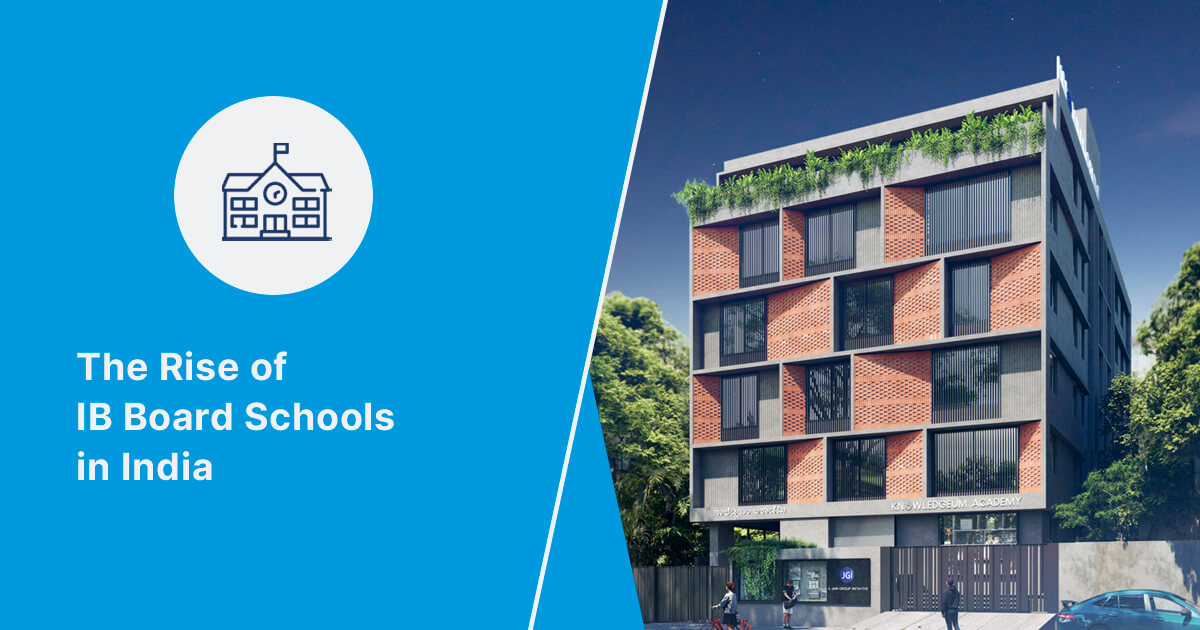The number of IB board schools has risen in the past decade with a 31% increase in the number of schools in the country between 2019 and Dec 2023. Currently, there are 216 schools across the country and proposals to add 100 more schools in the coming period. Many schools that offered ICSE or other Indian board educations are now offering IB curriculum. Parents understand the limitations of dated curricula and pedagogies. They neither challenge nor meet the need for fresh skills. Globalisation, the economic boom and aspirations for better value and lifestyle have contributed to the growth of IB Board Schools in India.
Metro cities such as Delhi, Mumbai, Kolkata, Bangalore, Gurugram and Hyderabad have prestigious IB Board Schools in India. IB’s global education framework is transforming the way of learning in India. It offers students a broader, more holistic educational experience focusing on their physical, social, emotional and personal development. Haif Bannayan, Global Director, Business Development, IB, quoted in FE Education, “Presently, 226 IB World Schools are dispersed throughout the country, delivering a combined total of 378 authorised IB programmes. This includes 138 schools providing PYP, 59 schools offering MYP, 155 schools delivering DP and 26 schools providing CP.” There is a major shift in the Indian educational paradigm with a conscious move from rote learning to a skill-focused approach.
The IB curriculum gives schools the flexibility to use regional situations to frame their pedagogy. For instance, students can learn traditional Indian dance forms such as Kathak and Bharatnatyam, or write their Extended Essay in IBDP on regional issues, interlinking it with international standpoints. Most IB Board Schools in India blend the regional and international in their pedagogy. Thus, students who are expatriates or local students who have limited opportunities abroad can have an equal platform to learn. For instance, many IB schools in India organise field trips for students to regional museums and important institutions. At the same time, students have opportunities to participate in international exchange programmes and competitions too.
Today, knowledge is just one voice command to Siri or Alexa or a click away on one’s smartphone. So, the need of the student is not information, but application and resourcefulness. IB Board Schools in India take a holistic approach to education wherein they focus on developing students’ critical thinking and self-learning skills through varied approaches. Experiential learning practices are used to impart learning to students through group discussions, self-learning, experimentation, and contribution to society through mandatory community service. The focus is on making students thought leaders with multilingual and multicultural education. Students are provoked to think and cultivate an inquiring mind through research and personalised learning.
IB Board Schools in India offer special programs for every stage of a student's life. These programs help shape students' personalities and the way they think.
Their IB Diploma Programme is a two-year course before university. In this course, students study subjects that prepare them for college programs. They also get activities and opportunities to build a strong profile for getting into top international colleges. While the IB Diploma Programme focuses on academics for college, they also have an IB Career-related Programme. This program combines academic study with job-related skills. It gives students the option to either start working or pursue higher education. In the Career-related programme, students are encouraged to analyse an ethical issue related to their job-related studies. Both the Diploma and Career-related programmes promote strong research skills, a sense of community, and a lifelong journey of learning and finding solutions to global problems.
IB Board Schools in India have great buildings and classrooms. They have very good teachers and staff. These schools have the best resources for learning. IB schools are modern. They keep updating what students learn. This helps students get an education that prepares them for the future. IB students can connect with their education. They understand why education is important. This is because IB schools focus on the needs of each student. This motivates them to be goal-oriented. To prepare students to confidently excel in the globalised world, IB is clearing a pathway.
© Knowledgeum
